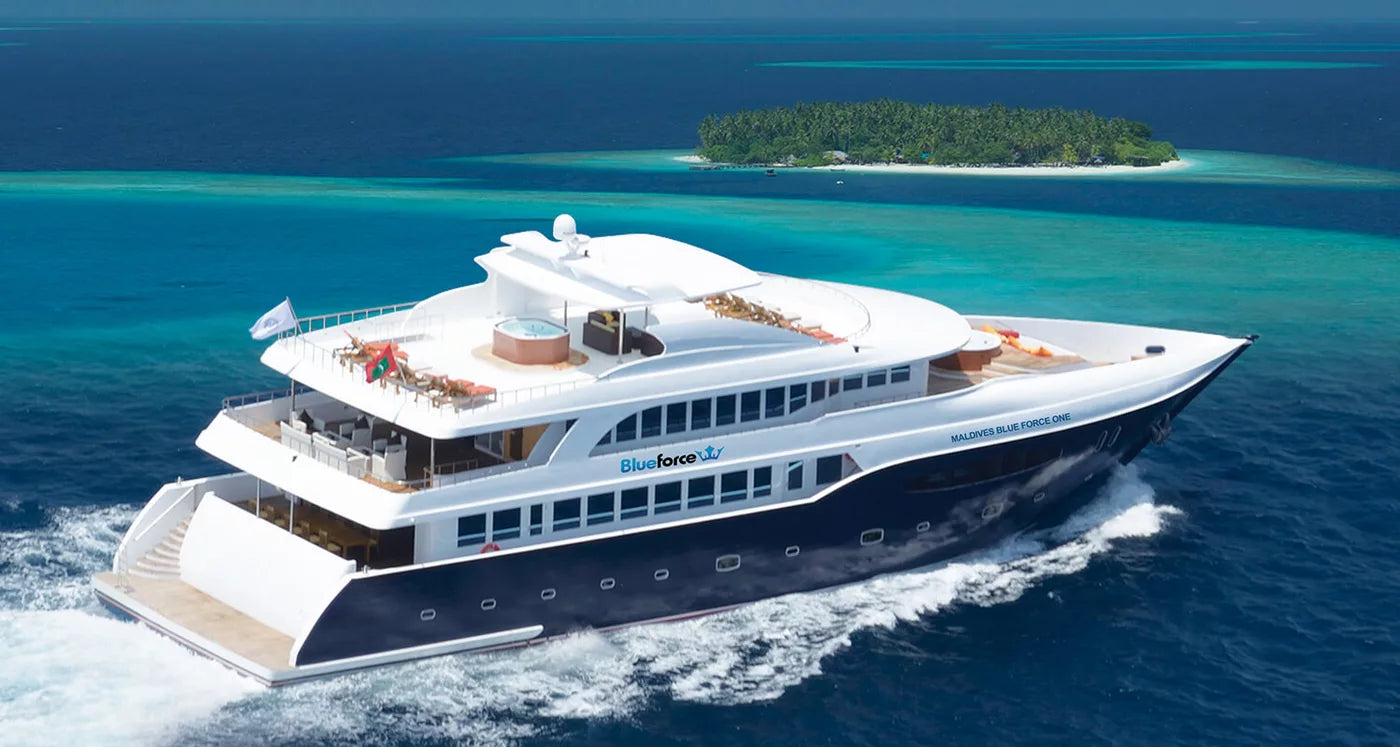

Maldives 4 atoll dive trip
Embark on the most popular and comprehensive diving route in the Maldives: guaranteed mantas, sharks, and coral gardens.
Maldives 4 Atolls: the most complete and diverse liveaboard route
Whats so special about the 4 atolls diving route in Maldives?
The Maldives 4 Atolls route is the most comprehensive because it brings together all the diversity found in this archipelago, from large pelagics to the varied species concentrated on the reefs. The main attraction of these islands is the opportunity to dive with giant mantas, whale sharks, and a large number of sharks, including hammerheads, gray sharks, blacktip sharks, silvertip sharks, and silky sharks, just to name a few.
Night dives are not frequent, usually one or two per safari, but they are spectacular, allowing us to witness sharks and rays in full action. The constant temperature of 28ºC in the water, excellent visibility, and the wide variety of fauna make this place a top destination for worldwide diving. This route varies throughout the year depending on the cruise, including some atolls further north and, in some cases and dates, approaching Hanifaru Bay, one of the best places in the world for manta ray diving, and undertaking routes like "Best of Maldives," "North and South Male," etc.
Compare and book online among the best diving boats in the Maldives on the 4 Atolls route at the best guaranteed price.
WHAT IS THE BEST TIME DO DIVE IN MALDIVES?
The best time to dive in the Maldives, the dry season, is from December to March. From May to August, we have the wet season, with increased rainfall, winds, and waves, significantly reducing visibility, but diving is still good. In May, there is a higher density of plankton, which reduces visibility but leads to a greater presence of mantas and whale sharks that feed on that plankton.
What dive certification do I need to dive in the 4 atolls route?
To dive on the 4 Atolls route, all you need is the Open Water Diver certification. However, it is highly recommended to have the Advanced Open Water Diver certification and more than 100 dives. If you also have Nitrox certification, that would be even better.
